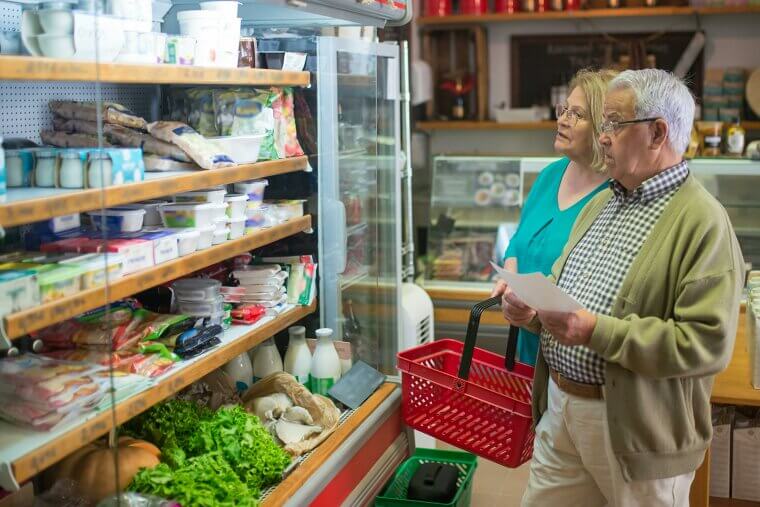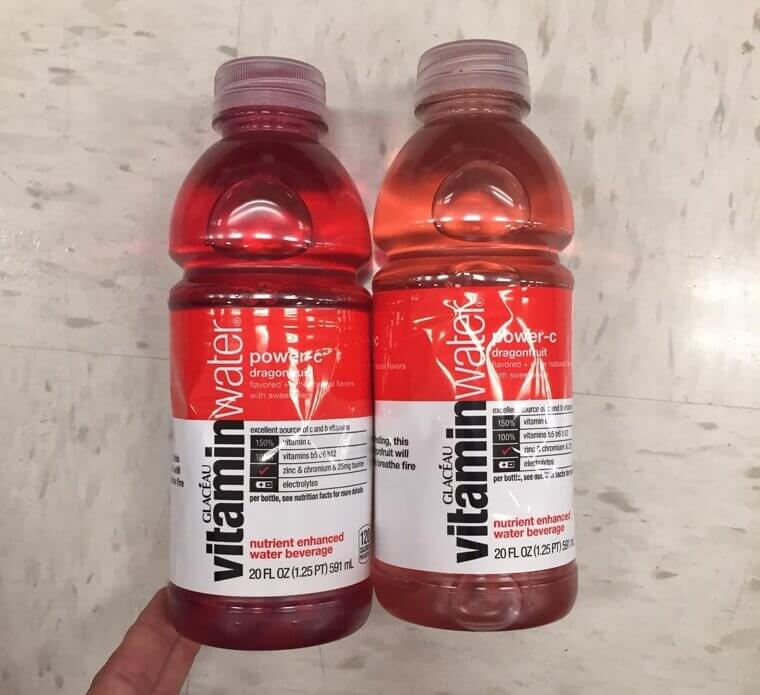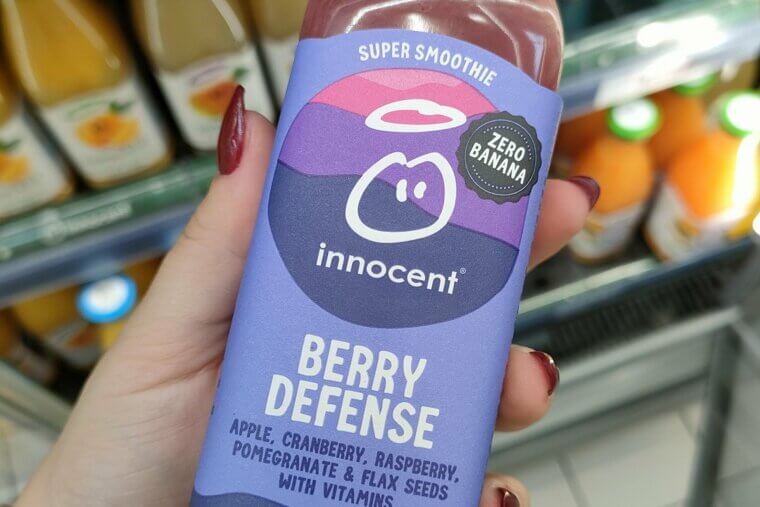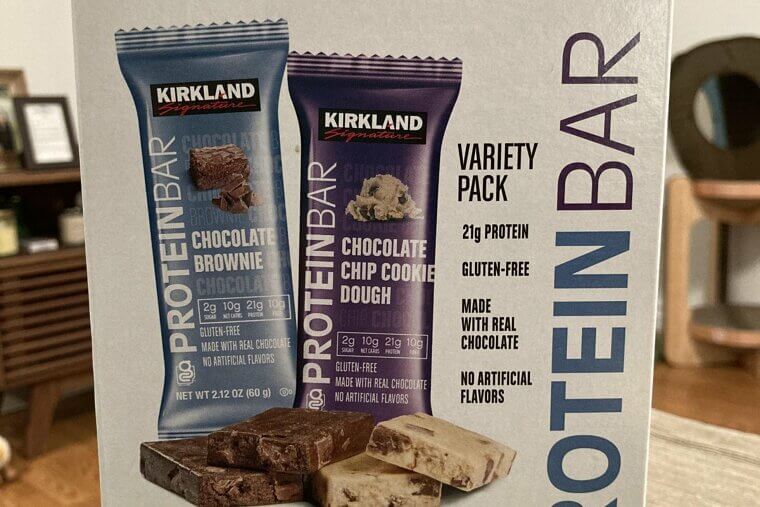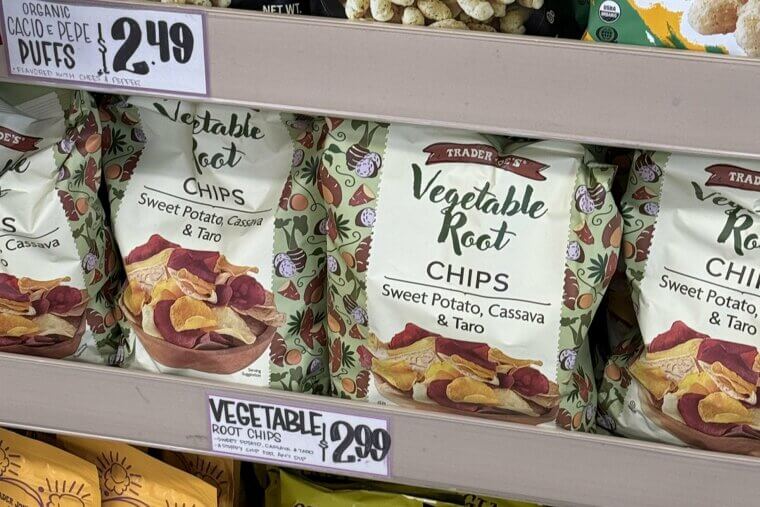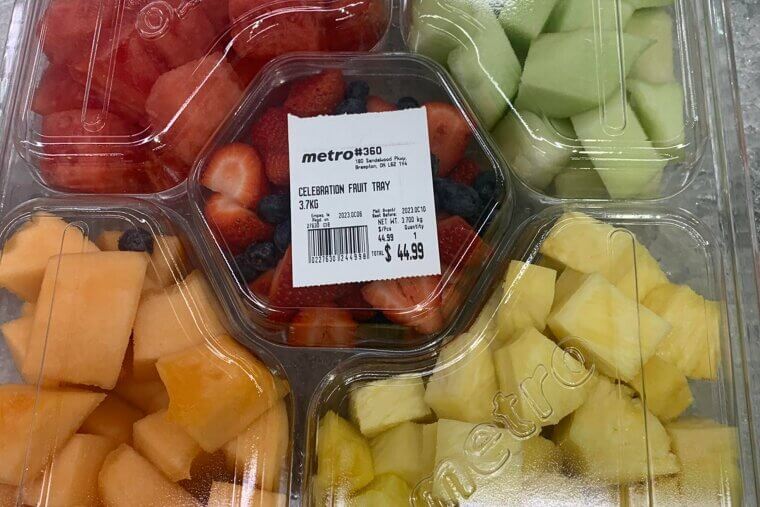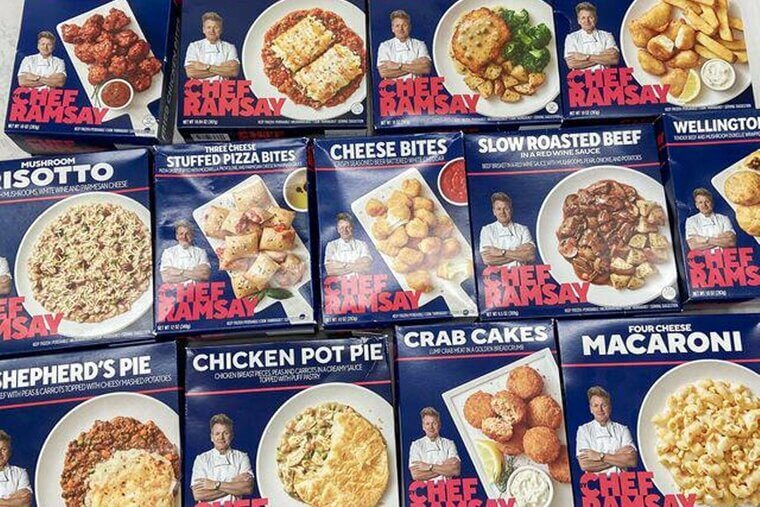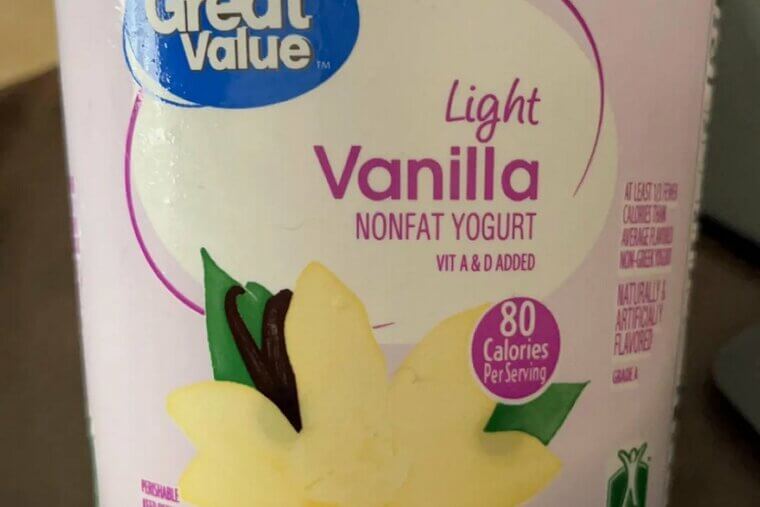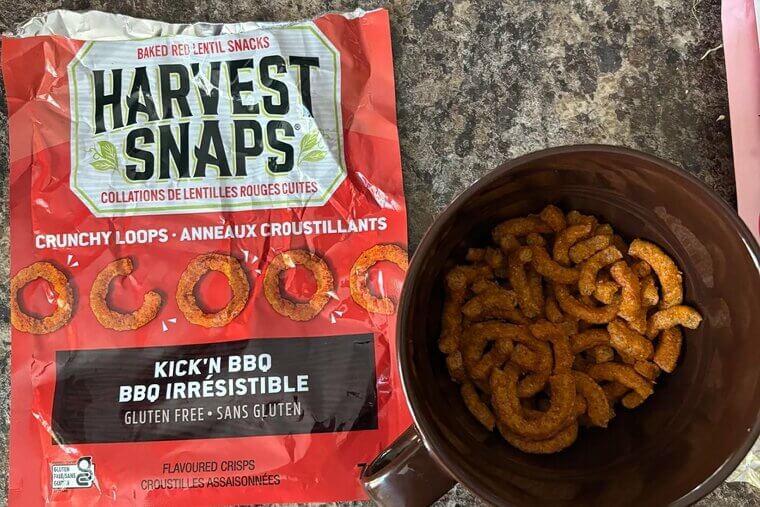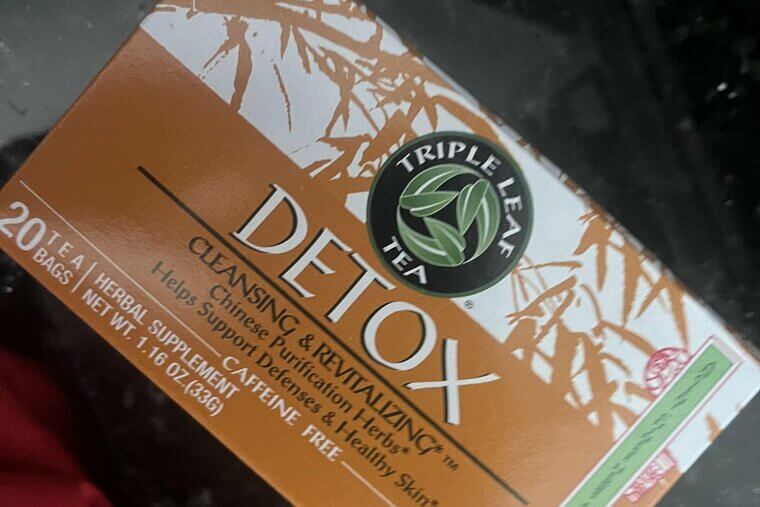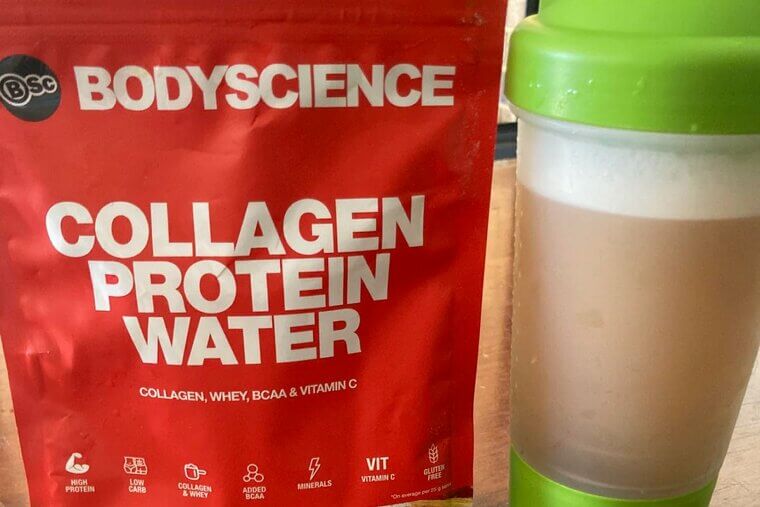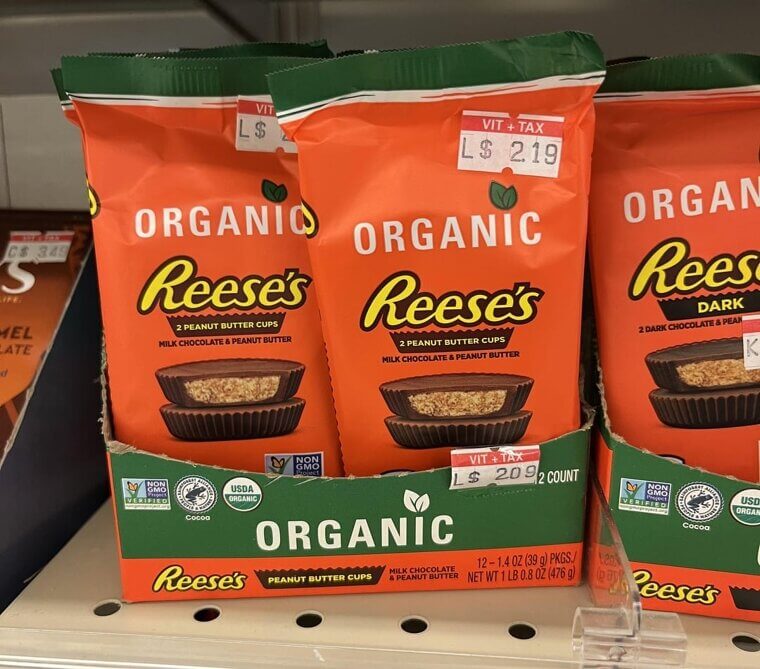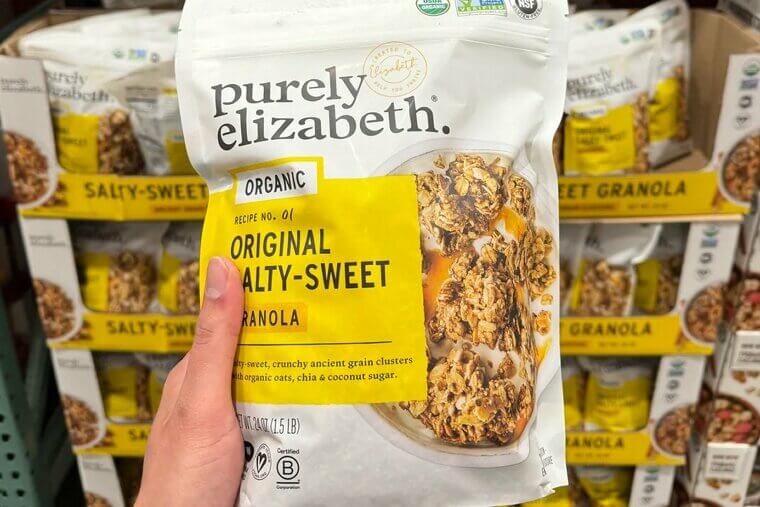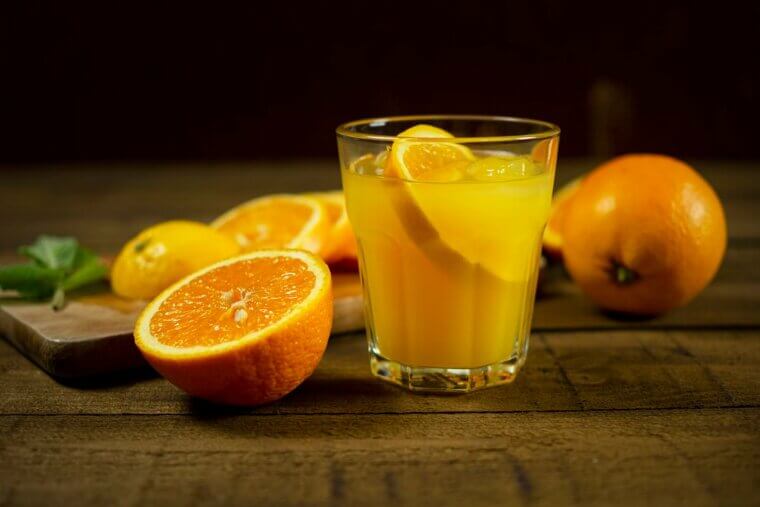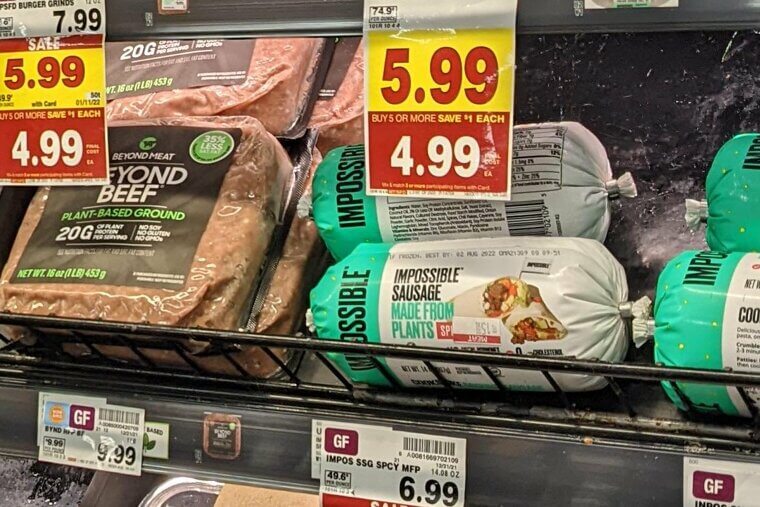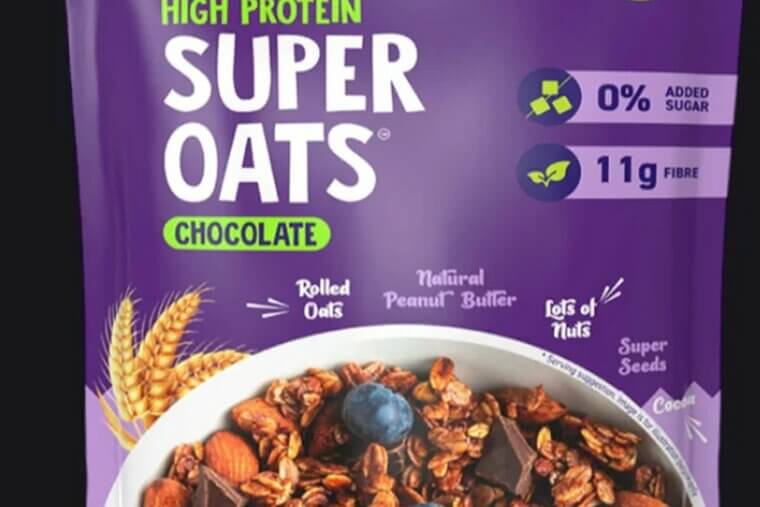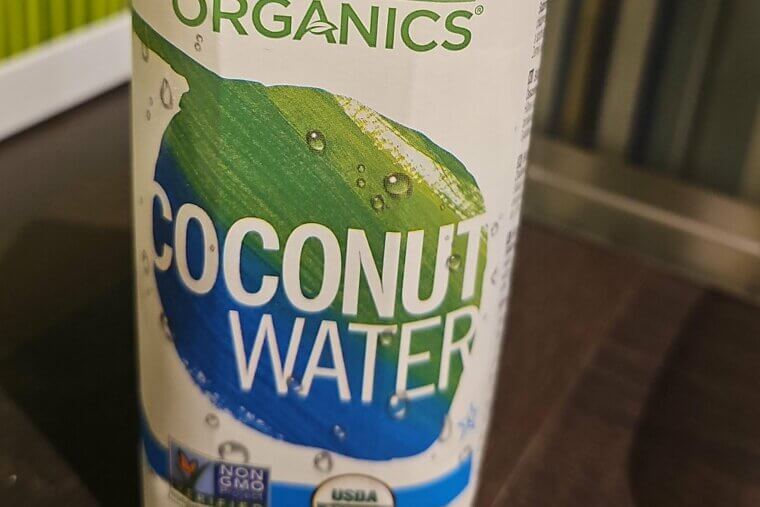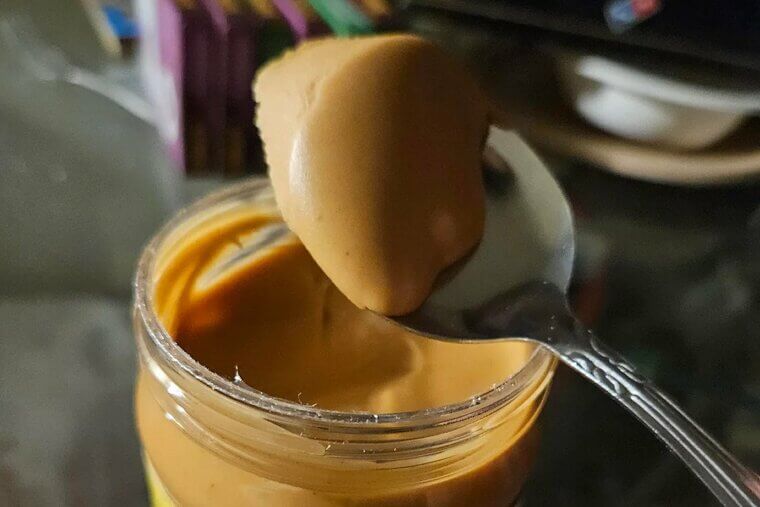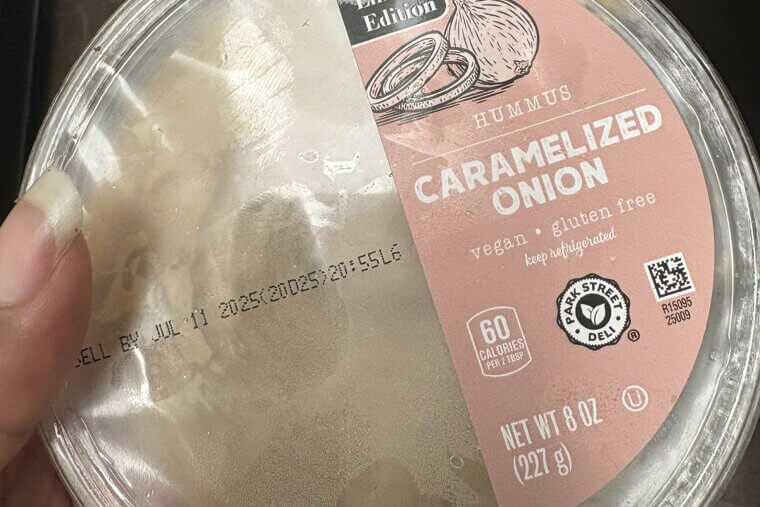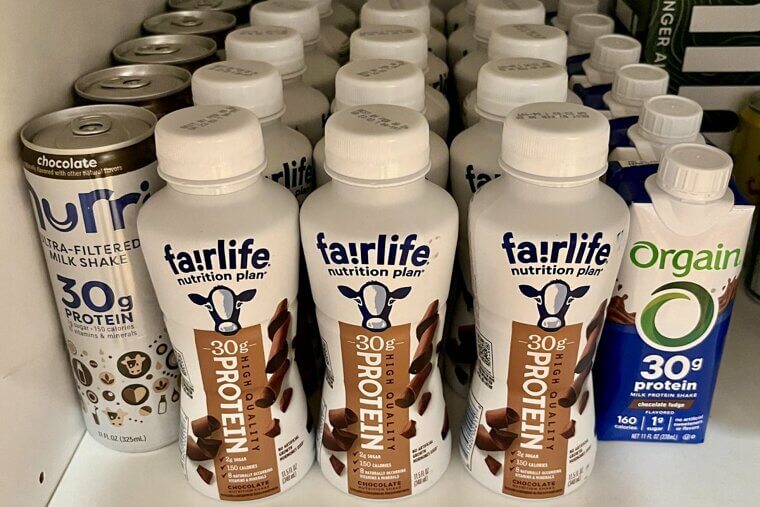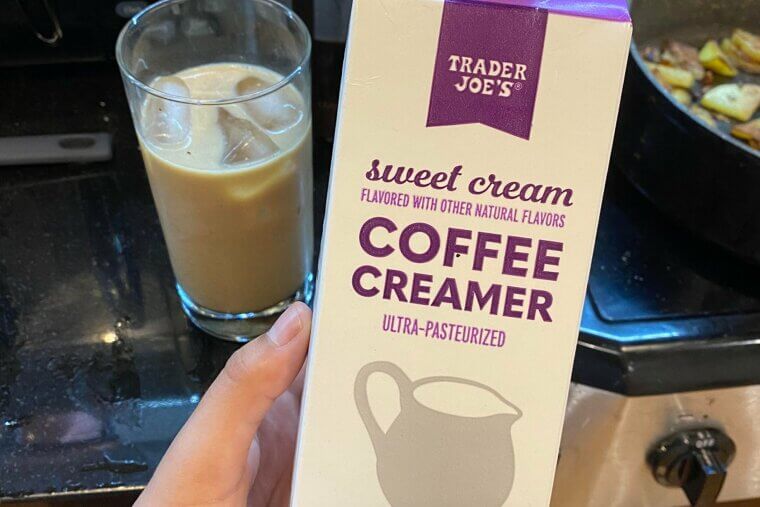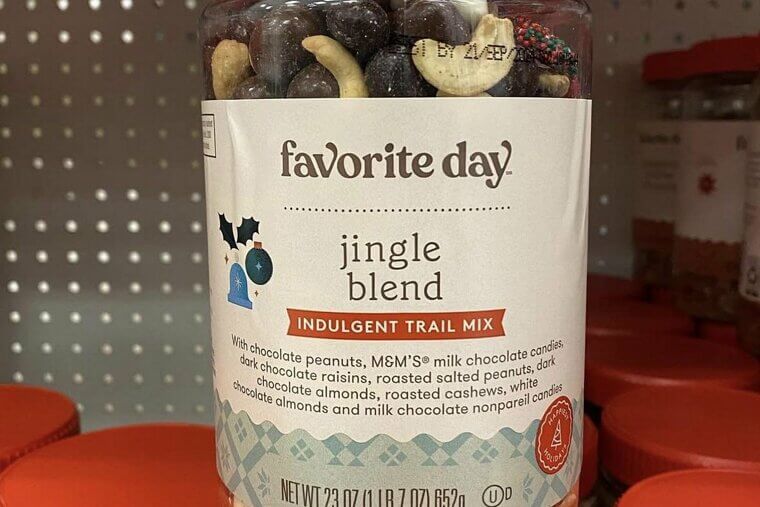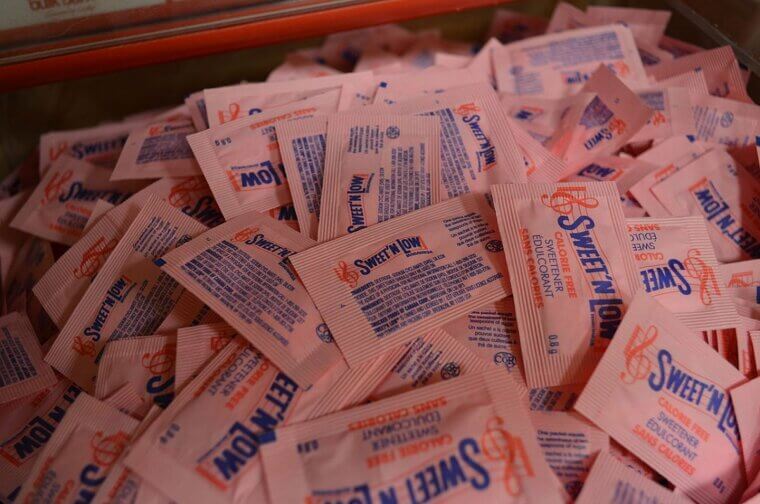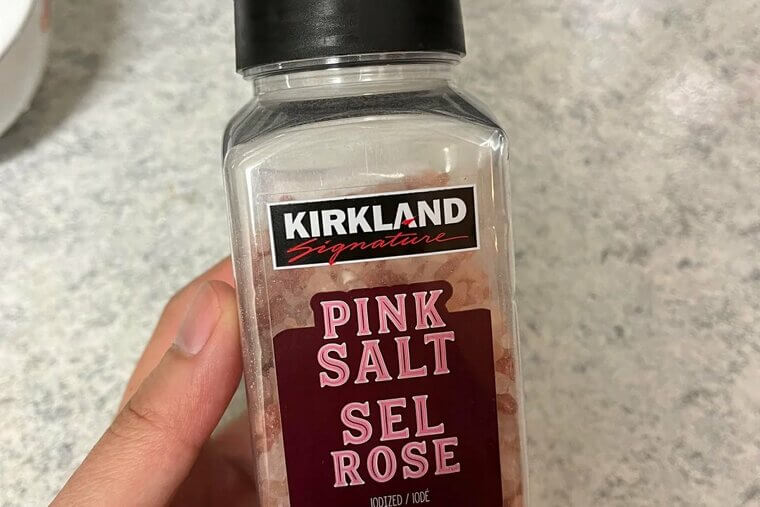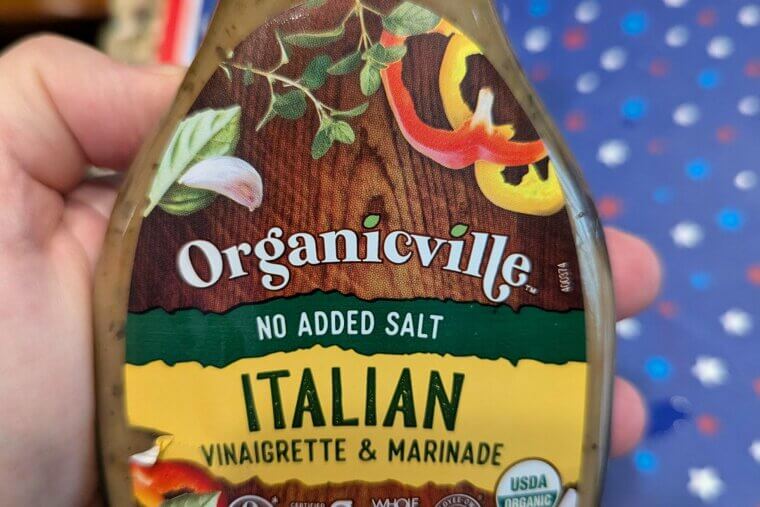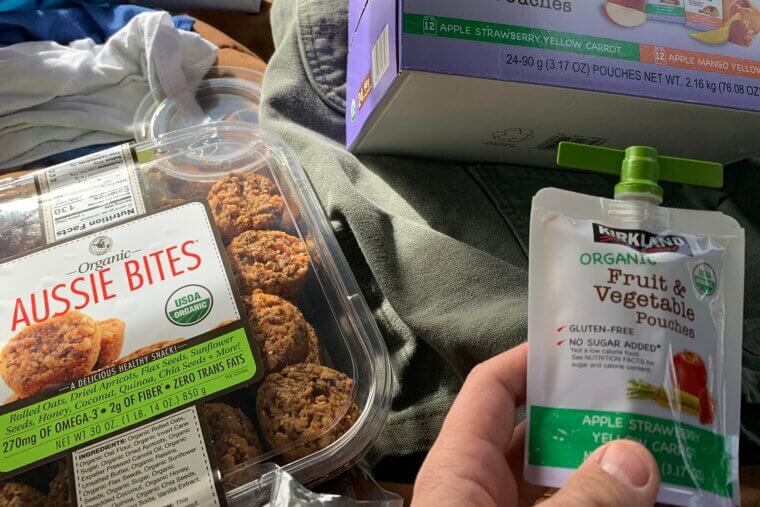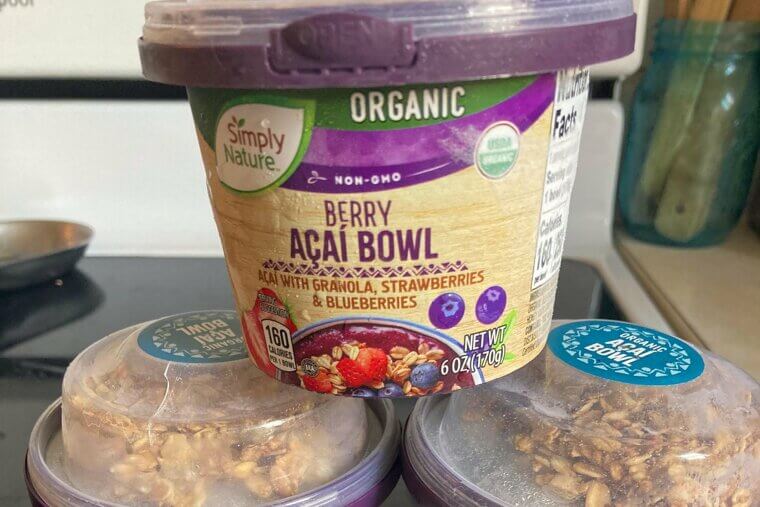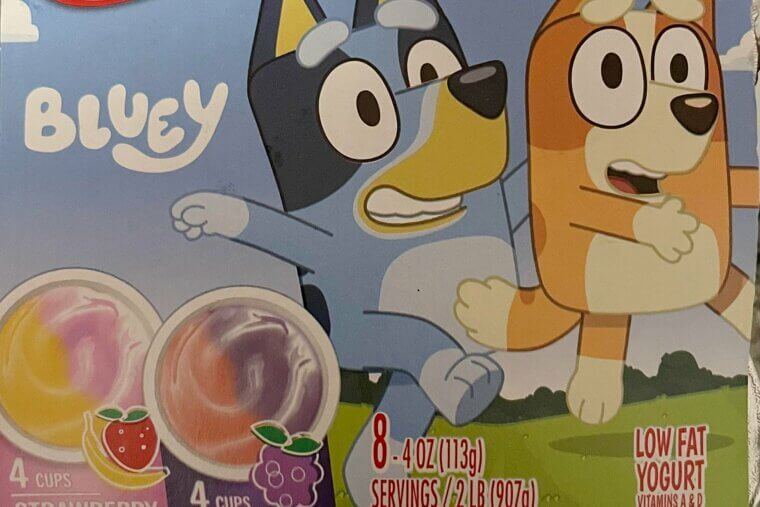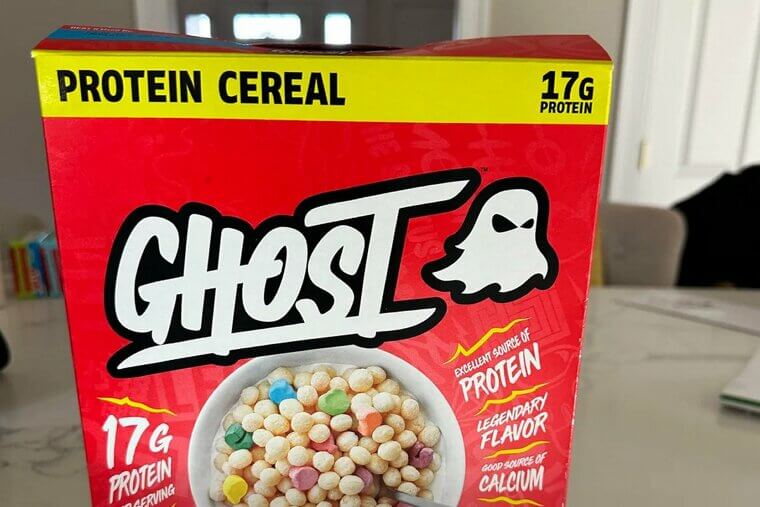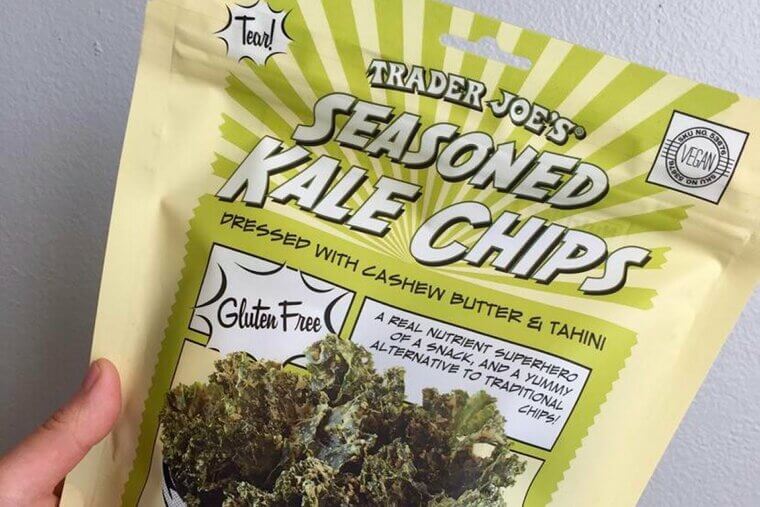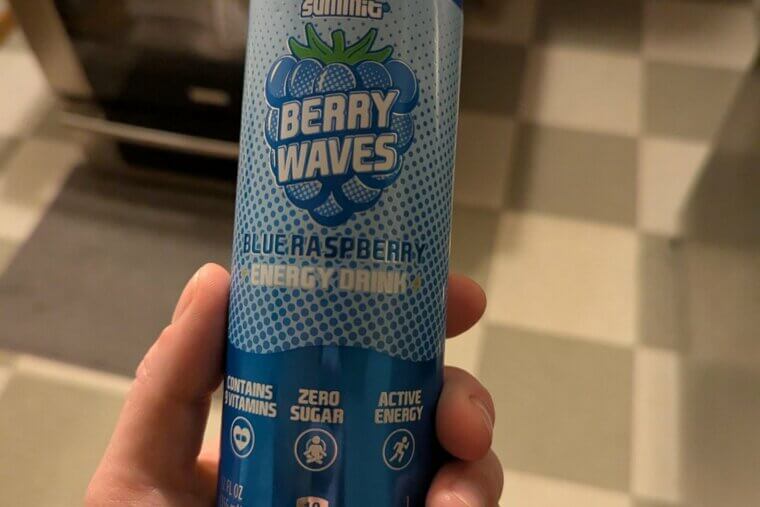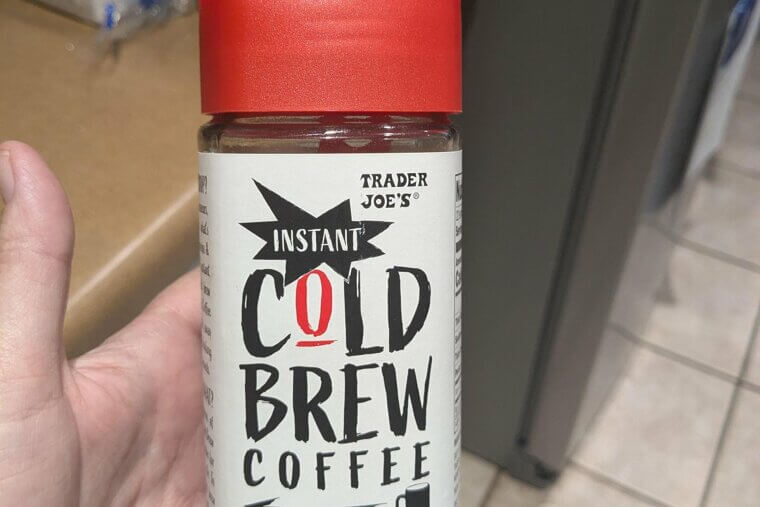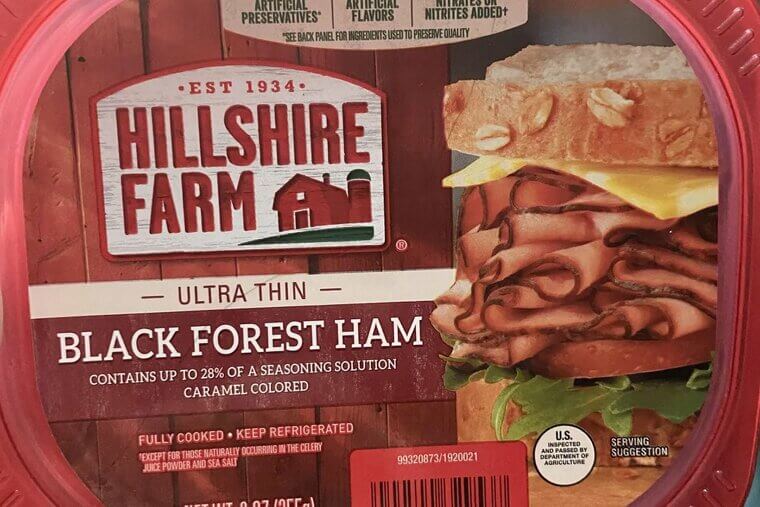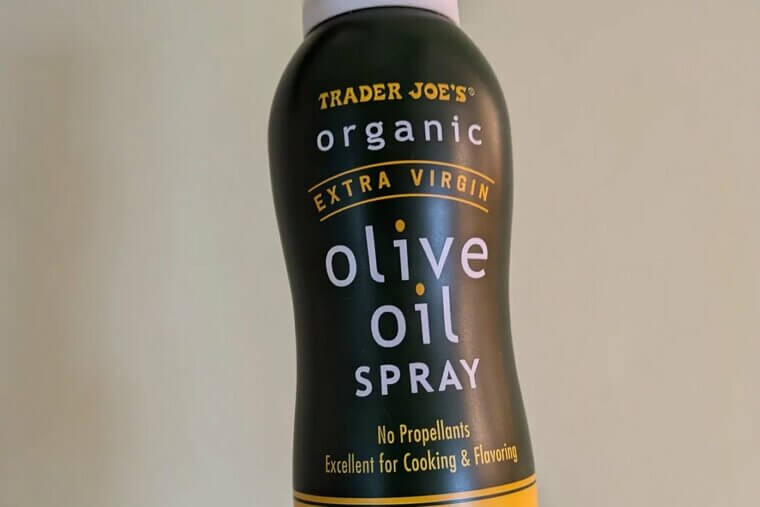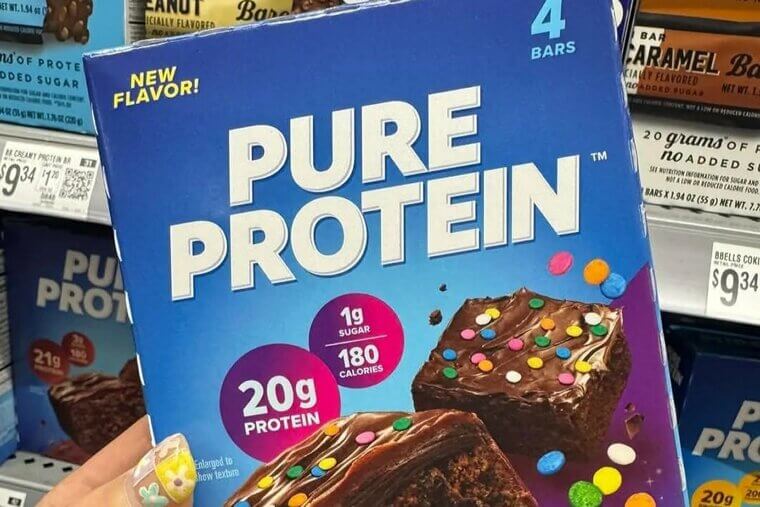Nobody Wants to Spend Their Hard Earned Money on Unhealthy Things
So, you want to get the most bang for your buck in the supermarket. Unfortunately, some companies lure you in with false promises of healthy food and secretly pack your snack full of bad chemicals and fattening ingredients. Here are 35 popular foods and drinks nutritionists think you shouldn’t touch, much less pay good money for.
Flavored Water With Vitamins
Flavored water with vitamins is, to put it bluntly, a ridiculously overhyped product that offers very little in the way of actual nutrition. What you’re paying for – sometimes paying a lot for – is basically just regular water with artificial sweeteners in it.
Bottled Smoothies
When trying to eat healthily, so many people make a beeline for their local smoothie place. Smoothies are good for you, right? Well… not the store-bought ones. They’re usually loaded with sugar and no fiber. You’re better off making your own smoothie at home, where you can control what goes into it.
Protein Bars With Long Ingredient Lists
Some people think that if an item has a long ingredient list, it must be good for you. Those people are very wrong. If you pick up a protein bar and it appears to be packed with dozens of unrecognizable ingredients, avoid. It’s probably no more nutritious than a candy bar.
Veggie Chips
Though they sound healthy, most veggie chips are just potato chips with vegetable powder. They’re deep-fried or baked in oils, so you’re getting very little nutrition from them. Basically, you’re paying through the nose for a false sense of healthiness.
Pre-Cut Fruit in Plastic Containers
Congrats to the marketing executive who first realized you could charge money for pre-cut fruit and plastic packaging. The packaging is bad for the environment too, so that’s a double whammy of wasted money. The only reason you should buy these is if you have a disability meaning you can’t cut food.
Frozen “Diet” Entrees
You would do well to be wary of anything marked “diet” in the grocery store… and yes, you should be checking the ingredient list on it too. These meals are usually high in sodium, low in fiber, and leave you hungry.
Low-Fat Flavored Yoghurt
Low-fat yoghurt is often basically just a mild scam, because the manufacturers take the fat out and throw a lot of unhealthy sweeteners in. Full-fat, plain yogurt with fresh fruit is healthier and more cost-effective in the long run.
Gluten-Free Snacks
Unless you’re gluten-intolerant, most stuff marketed as gluten-free offers very little health benefit. They’re usually packed full of – guess what? – sugar, and lack any real nutrition. And to be frank, you’re paying for the marketing when you buy them.
Detox Teas
Detox teas are terrible for you and some people think they shouldn’t be allowed. They often contain laxatives, which cause dehydration and electrolyte imbalances. Your body already has a detox system - your liver and kidneys. You don’t need to “detox” and you don’t need to pay for it.
Enhanced Waters With Collagen or Caffeine
Be very wary of a drink that promises to make you beautiful. Collagen often doesn’t survive digestion, and caffeine can be sourced more cheaply from coffee or tea. People are often fooled by these drinks and pay extra for absolutely nothing of value.
Organic Candy
Slapping an "organic" label on candy doesn’t make it healthy. It’s still sugar, which spikes blood glucose, rots your teeth, and contributes to obesity. The “organic” version is just as bad for your health as regular candy, only more expensive.
Granola With Added Sugar
Most store-bought granola is packed with added sugars and oils… so much so that you might as well have a dessert instead. Instead of falling for the clever marketing, you should make your own granola at home instead. Then you know exactly how much sugar is in it.
Juice Cleanses
Juice cleanses sound healthy but can lead to fatigue, muscle loss, and serious nutrient deficiencies. There's no scientific basis for "cleansing" your body this way - it already detoxifies itself perfectly well. You’ll lose money and feel worse.
Plant-Based Meats With Excessive Sodium
Vegans are often tempted to venture into the plant-based foods aisle, but they might come out of it dissatisfied. Plant-based meat alternatives are often ultra-processed, containing preservatives and high levels of sodium.
”High Protein” Instant Oatmeal Packets
This is another food where the marketing is good and the actual nutrition is bad. The instant packets of oatmeal often contain sugar, artificial flavorings, and less fiber than homemade oatmeal. Yes, they have protein, but that’s not enough.
Coconut Water
Coconut water is marketed very well, but slowly people are coming round to the idea that it might not be all it’s cracked up to be. It’s high in sugar and probably completely useless to you unless you’re an athlete. Avoid!
Expensive Nut Butters With Additives
The more expensive a nut butter is, the more it’s probably not worth your time. They usually contain palm oil, sugar, or completely unnecessary flavorings that drive the price up. Always check the ingredients list and see what you’re actually getting before you buy.
Single-Serve Guacamole or Hummus Packs
With these, you’re paying more for less product. Make it make sense! Yes, guacamole and hummus is good for you, but that’s why you should buy in bulk. Or even better, make your own at home – then you won’t have to worry about the plastic packaging.
Shelf-Stable Protein Shakes
Long shelf life means heavy processing and a whole bunch of unhealthy ingredients in your protein shake. They’re marketed as nutritious, but in truth they’re anything but. Whole food like eggs and beans will give you all the protein you need.
Flavored Coffee Creamers
Here you’re paying for the fancy packaging more than anything else. Flavored coffee creamers are packed with sugar and artificial flavorings, and they offer pretty much zero in the way of nutrition. Just put milk in your coffee instead.
Snack-Size Trail Mix With Chocolate
While nuts are healthy, the chocolate and sugary dried fruit in many trail mixes are not. And buying snack-size portions hurts your wallet – why do that when you could buy in bulk? Or even better, you could make your own mix and leave the chocolate out.
Artificial Sweetener Packets
Don’t touch these, they’re on hundred percent not worth the money. The ingredients in artificial sweeteners mess with your gut and may leave you feeling worse than if you’d eaten sugar.
Fancy Sea Salts or Pink Salts
Don’t be fooled by the packaging, these things are no better for you than regular salt, and will still raise your blood pressure. It would almost be fair to call them a scam at this point, and a lot of buyers fall for it. They end up paying a ton for something they could have bought cheaply.
Bottled Salad Dressings Marketed as “Healthy”
Just because something’s marketed as healthy it doesn’t mean it is. Many of these dressings contain added sugars, cheap and nasty oils, and preservatives. Making your own at home from olive oil, vinegar, and herbs is a much better idea.
Fat-Free Ice Cream
Yes, the ice cream has had the fat removed, but that means they added sugar or artificial thickeners to preserve texture and taste. So you’ve got something that’s just as bad as regular ice cream, but is more expensive. Don’t be fooled.
Prepackaged “superfood” Snack Bites
By the time superfoods have been processed into snack bites, they’re not so super anymore. These combine dates, nut butters, and “superfoods” like chia or maca, but they’re usually high in sugar and calories, and thus not worth the price.
Frozen Acai Bowls
These bowls are marketed as being some of the healthiest things you could treat yourself to, but the truth is harder. Acai itself is nutritious, but the toppings and syrups make these bowls more like dessert than health food. And a dessert with a high price tag at that.
Fruit-Flavored Yogurts Marketed to Kids
These yogurts often have cute cartoon critters on them to make kids demand them from their parents. If you give in, the result is sometimes a sugar-obsessed kid. Instead, you gotta teach your children the joys of regular yogurt with a healthy topping like fruit.
Breakfast Cereal With Added Protein
Beware of a breakfast cereal that brags about how much protein it contains. Protein-added cereals often still contain refined grains and sugar, and aren’t really all that much more nutritious than regular cereal. People get fooled by the clever marketing.
Packaged Kale Chips
Some people will buy anything as long as it has kale in it, but they really shouldn’t. Despite being made from a healthy leafy green, packaged kale chips are often coated in oil and salt, rendering them basically just another snack food.
Energy Drinks With Added Vitamins
Energy drinks really aren’t as good for you as the marketing would want you to think. They combine high caffeine with sugar or artificial sweeteners, and the “added vitamins” don’t actually add up to much. Some people drink too many and end up getting the jitters.
Bottled Cold Brew With Extra Sugar
Many bottled cold brews add flavored syrups or sweeteners, turning coffee into an overly sugary and definitely overpriced drink. If you really want a caffeine fix, it’s best to make your own at home – that way you’re not paying for the extra sugar or the fancy packaging.
Deli Meats Labeled “natural” but Still Processed
Deli meats labeled “natural” are sometimes, not to put too fine a point on it, lying to you. They contain nitrates, preservatives, and high sodium levels, and have been linked to health risks like heart disease and cancer. You should really roast your own meats at home and avoid the deli altogether.
“Zero Calorie” Cooking Sprays
Despite the label, these sprays often contain chemicals and propellants. Serving sizes are so tiny the manufacturers are legally allowed to claim zero calories, but it’s not technically true – frequent use will see those calories add up. You're better off using a small amount of real oil with a brush.
Protein Cookies or Brownies
Beware of unhealthy food trying to market itself as healthy. These processed snacks often use low-quality protein and contain sugars and artificial ingredients. They won’t fill you up, so you’ll overeat, and then you’ll feel terrible later.

